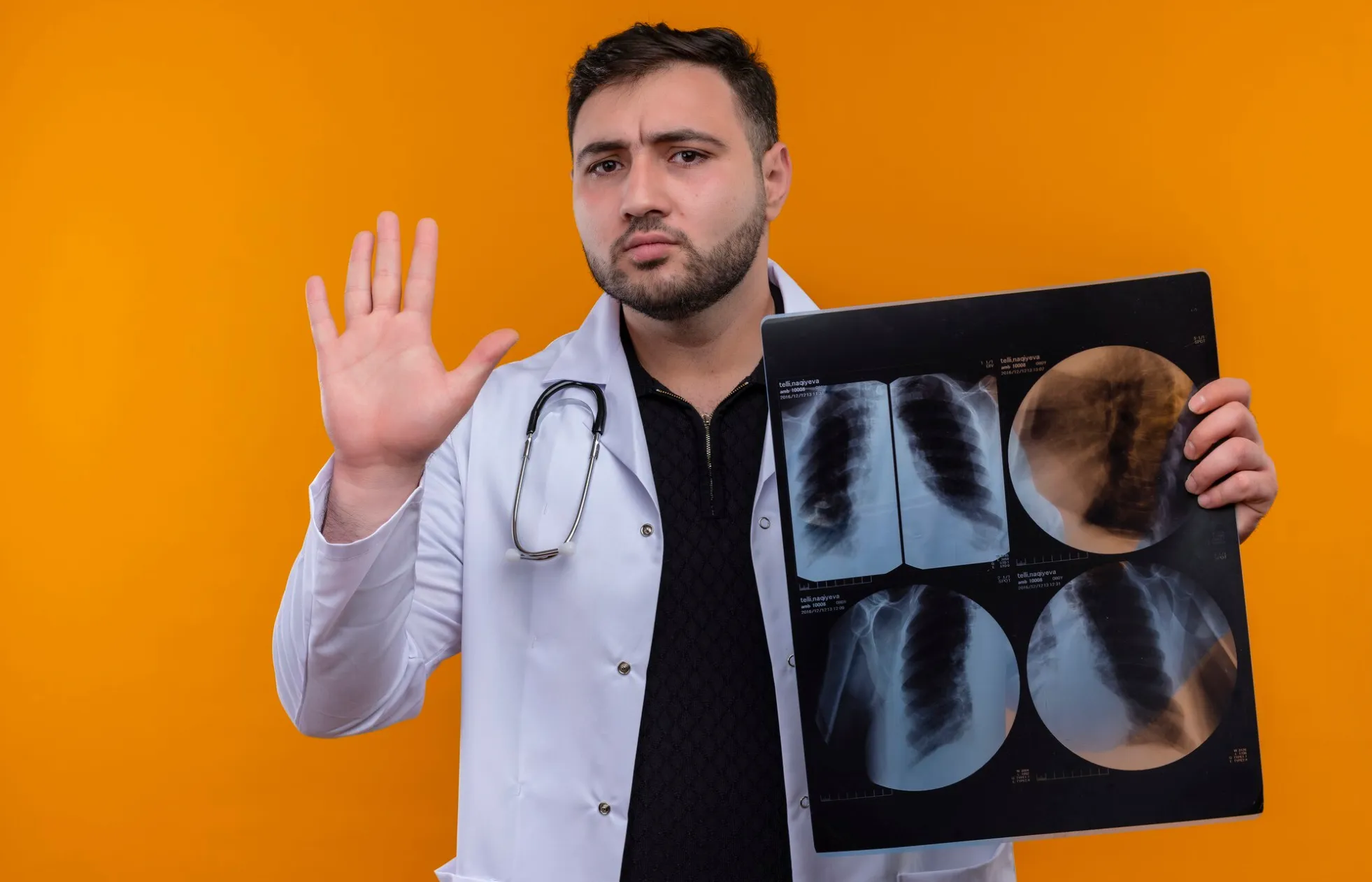Learn More About COPD research studies
What Are COPD research studies and its Clinical Trials?
Chronic obstructive pulmonary disease is a group of diseases that affects the lungs and causes obstructed airflow and breathing problems. According to the Centers for Disease Control and Prevention, COPD, or Chronic obstructive pulmonary disease, causes airflow blockage from the lungs and includes chronic bronchitis and emphysema.
COPD is a group of chronic lung diseases and the third leading cause of death in men and women worldwide. Chronic obstructive pulmonary disease affects millions of individuals worldwide; even though it has no cure, it is treatable.
COPD includes emphysema and chronic bronchitis.
Emphysema causes shortness of breath. It is a lung disease that damages tiny air sacs in the lungs as their inner walls weaken and eventually rupture. This condition results in larger air sacs that make it harder to breathe.
Chronic bronchitis is when the bronchial tubes become inflamed and irritated, resulting in a productive cough, shortness of breath, and wheezing.

Bronchial asthma and COPD have similar symptoms, but they have different etiology and responses to therapy. However, asthma can coexist with COPD, and both conditions are characterized by airway inflammation, making diagnosing and treating patients with underlying respiratory symptoms difficult.
The following symptoms of COPD typically develop in affected patients:
- Wheezing
- Chronic coughing with phlegm production
- Shortness of breath
- Tiredness.
The following significant COPD risk factors cause the gradual development of the disease over time:
- The long term active smoking
- Exposure to indoor air pollution like biomass fuel and coal
- Prematurity, poor uterus growth, or early life events that prevented lung growth.
Furthermore, alpha-1 antitrypsin (AAT) deficiency is a genetic disorder that causes lung damage. This under-recognized clinical disorder causes defective alpha-1 antitrypsin protein production, as this protein protects the lungs from damage. The AAT deficiency was the first risk factor recognized for COPD and is associated with the early onset and development of COPD.
COPD research studies are clinical trials that may result in better and more effective treatment options for patients. Each research study answers how well new medical approaches work in affected patients, and the clinical trials aim to find better ways to screen, diagnose, prevent, and cure the disease.
For example, National Heart, Lung, and Blood Institute (NHLBI) has committed to research on pulmonary diseases and leads research programs in the United States and the rest of the world. The resulting COPD research studies have shown that certain lifestyle changes and treatment methods can help these patients and slow the progression of their diseases. The major goal of these clinical trials and research studies is to treat lung diseases in their earliest stages.
Why Is COPD Being Studied Through Clinical Trials?
According to the Centers for Disease Control and Prevention, the following trends in COPD are recognized:
- COPD is more prevalent in women than men, as they make up 50% of lung disease cases.
- Even though cigarette smoking is a leading cause of COPD, one of our four patients has never smoked.
- More than 16 million people worldwide have been diagnosed with COPD, yet millions more have the disease but don't know it yet.
COPD has remained a burden on the healthcare system and is expected to remain a leading cause of death worldwide. Over the years, several clinical trials were conducted, which resulted in many effective drugs that have now become part of the treatment protocols.
Clinical trials and COPD research studies help researchers understand how lung diseases are caused, how it develops and progresses, and how it is treated. This research can lead to a better future for affected individuals. Many breakthrough research studies have made significant contributions in this field, and patients worldwide are encouraged to take part in clinical trials to have a hand in better treatment and cure for COPD in the future.
What Are The Types of Treatments Available For COPD?
COPD treatment involves thorough and careful physician evaluation, followed by appropriate treatment options. These treatment options can help reduce the severity and frequency of symptoms and COPD exacerbations.

The treatment options include:
Lifestyle Modifications
- Quit smoking
- Avoiding tobacco
- Protection from air pollutants
Supervised Interventions
Pulmonary rehabilitation:
Doctors recommend pulmonary rehabilitation to COPD patients so they can breathe easier and manage their routine and social activities better. The healthcare team conducts many tests, including an Exercise stress test, which measures the patient's oxygen levels, breathing tests, and a six-minute walk test.
Supplemental Oxygen:
Supplemental oxygen is a treatment therapy, and its long-term use improves the survival of COPD patients with severe resting hypoxemia. Doctors may recommend portable oxygen tanks to patients with COPD if the oxygen levels in their blood are low.
Inhalers
Many people with COPD are given medicines in the form of inhalers that include:
- Steroid inhalers - These inhalers contain corticosteroid medicines which reduce inflammation in the lungs and airways.
- Short-acting bronchodilator inhalers - These inhalers include beta-2 agonist inhalers like terbutaline, salbutamol, and antimuscarinic inhalers like ipratropium. These medicines relax and widen the airways and make breathing easier.
- Long-acting bronchodilator inhalers- These include beta-2 agonist inhalers and antimuscarinic inhalers, which work similarly to short-acting inhalers, but the dose lasts longer.
What Are Some Recent Breakthrough Clinical Trials For COPD?
The knowledge surrounding COPD and its components is almost 200 years old. The clinical understanding of COPD began evolving in 1814 when Charles Badham, a British physician, identified bronchitis as a part of COPD.
Today COPD is getting the necessary attention for its ultimate cure and treatment. The disease is partly reversible and progressive and remains a major disease in the USA that continues to rise in morbidity and mortality.
The development of COPD and its pathogenesis is a complex mechanism. Still, the major underlying problem with these diseases is the inflammatory damage to the lung's airways and capillary damage of alveolar surfaces. This inflammation leads to obstruction of the tiny airways, causing difficulty in breathing and other symptoms.
The inflammatory processes associated with COPD begin with inhaling harmful gases such as cigarette smoke. The airways become inflamed, resulting in mucous gland hypersecretion.
The prime cellular mediators of COPD inflammation in response to these noxious gases are CD8+ T lymphocytes, neutrophils, and macrophages, and most of these mediators are not very responsive to corticosteroids, which is why COPD patients are not as responsive to the inhaled and systemic steroids as compared to asthma patients.
Other clinical trials and COPD research studies related to the pathogenesis of emphysema and chronic bronchitis predicts a promising future for the patient's treatment and the effectiveness of new medications.
2014: This publication discusses a recommendation for a dual-acting bronchodilator treatment for COPD, including long-acting β2-agonists and long-acting muscarinic antagonists. The combined action leads to a long-acting treatment, which is significant as the resulting bronchodilator activity is enhanced compared to standard treatments. This LAMA/LABA combination is expected to become a treatment standard for COPD. This research study may also lead to developing future triple therapy for COPD patients in one inhaler.
2016: The surgical procedure of lung volume reduction surgery was studied as an effective and safe method for treating patients suffering from severe diffuse emphysema. Emphysema is characterized by damaged emphysematous lung tissue. This surgery aims to resect the damaged tissue, increasing its elastic properties and thereby contributing to long-term treatment and better quality of life.
2017: A project by the University of Auckland, Department of Medicine, supported by the National Institute for Health Research, evaluated the safety of oral Phosphodiesterase 4 inhibitors for managing COPD. This study was significant because no other lifestyle modifications showed a decrease in lung function decline apart from smoking cessation. Oral PDE₄ inhibitors like roflumilast and cilomilast were proposed to decrease the inflammation in airways and reduce the bronchoconstriction which is associated with COPD.
2020: A new Phase I study conducted research surrounding exacerbations of COPD patients, which is related to respiratory viruses. A novel dry-powder formula of the broad-spectrum antiviral agent, Ribavirin, is being studied to treat viral infections in COPD. Two new inhaled Ribavirin formulations are developed for efficient lung delivery. This study was significant as it minimized the systemic exposure of Ribavirin, resulting in a convenient and efficient delivery of the antiviral agent to the lungs.
2020: This retrospective study published online discusses how the monitoring of AATD (Alpha-1 antitrypsin (AAT) deficiency) patients is an area of active research, as the lung function tests may allow physicians to determine disease progression and make decisions about the AATD-specific therapy, as AATD is recognized as a risk factor for pulmonary infections.
Who Are Some Of The Key Opinion Leaders / Researchers / Institutions Conducting COPD Clinical Trial Research?
Many key researchers and associations are working to address the problem of COPD, an urgent healthcare concern affecting millions worldwide.
Dr. James Hogg
Dr. James Hogg, a professor emeritus at the Department of Pathology and Laboratory Medicine, University of British Columbia, is a treatment pioneer for COPD research studies as he dedicated more than 40 years to the research, treatment, and understanding of COPD. His attempts have revolutionized COPD research studies, which involved him in conducting many scientific studies.
The American Lung Association
The American Lung Association has a dedicated board of directors and volunteers working together to form a strategic framework supporting all COPD patients. The American Lung Association offers multiple resources and knowledge about this disease, including risk factors and treatment. It provides funding to many COPD research studies to help those suffering from the disease.
National Heart, Lung, and Blood Institute
The National Heart, Lung, and Blood Institute supports significant research studies that are making huge advancements in COPD research and treatment. The dedication and hard work of the National Heart, Lung, and Blood Institute and its supported research studies have proven that certain lifestyle changes and treatments can help COPD patients. Other clinical studies focus more on treating this disease in its earliest stage.
WHO
WHO responds to the growing need for the prevention and control of COPD through the Global Action Plan for the Prevention and Control of Noncommunicable Diseases (NCDs.) These actions were committed to improving Noncommunicable Disease management in low-resource settings, including protocols for diagnosing, managing, and assessing COPD and other related disorders.